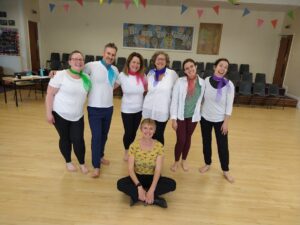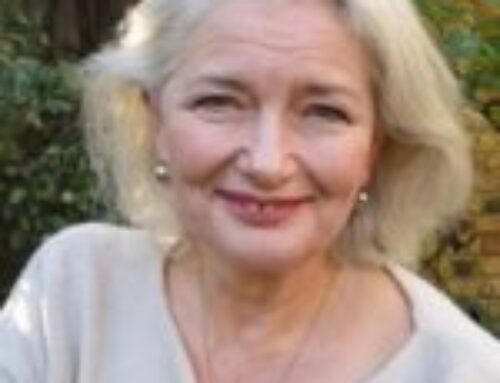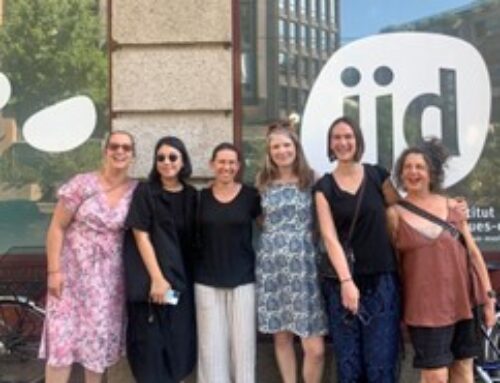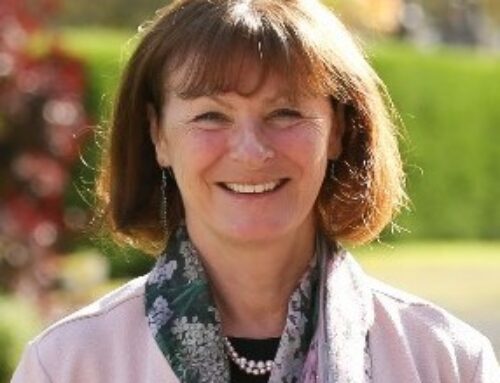
Trixy (3rd from left) with the foundation group
Kaye Barker interviews Trixy Alberga who has just completed the foundation course.
What prompted you to attend the foundation course 2022-23?
During 2022, Jacqueline Vann (Dalcroze Teacher) attended an afternoon zoom workshop with the European Piano Teachers Association. Jacqueline Vann is an engaging personality exuding confidence, skill and expertise in her field. I had attended Dalcroze workshops before and had not been greatly taken with it. On this occasion, we did some rhythmic practice stepping and conducting in 3 and 4. There and then, the penny dropped that moving physically to new rhythms could be a way of getting children to understand them quickly and effectively. So much easier and more fun than mathematical explanations! I attended a taster day at the Cardiff summer school in 2022 and loved it.
I applied to attend the Foundation course and was amazed, terrified and delighted to get in.
Although I teach piano and voice part-time, I’m “retired”. After 40 years as a civil servant and management consultant, and with a new hip and knee held up by a rigid regime of swimming and Pilates, I was ready to get on with something different; a new target. I already have a raft of academic qualifications, but I knew that Dalcroze with its practical element would bring different challenges and hopefully benefits. I don’t have a music degree and have dragged myself up to piano and singing diploma levels through ABRSM and Trinity exams.
What happened once you began the course?
First of all, I met 5 extremely competent musicians with proper music degrees. Uh oh! But actually, this was not a problem. The kind and competent team set an accepting tone and after a bit of wriggling, people found their place in the group. My place was at the bottom. I had expected this, and it turned out to be fine. Our group is kind and cooperative; everyone accepted for what they can bring.
I had especially wanted to learn Solfa. I couldn’t have come to a better place. There is a focussed and well thought through approach to delivering this new skill building on Kodaly’s gestures and focussing on a limited range of keys. This makes it straight forward to link theory and application. I found this hard going at first and was given invaluable remedial support. The rhythmics was also a physical and mental challenge. Full body conducting is a physical workout and anchors rhythms in the body. Stepping the time signature and clapping the rhythm and then reversing it made my brain explode. But in a good way. Working with our group for 90 minutes to diverse music Kate Bush Army dreamers, Benny and the Jets, Pachelbel Canon, is extraordinary fun.
So where has all this taken you?
Not sure yet. I already use the music and movement elements with a group of three sisters I teach. They love it especially the six-year-old. I’m looking forward to seeing what impact Dalcroze has had on her once she starts to learn the piano.
I am also more thorough in using the words in the songs printed in piano primers (Bastien series). Since I now believe that this will anchor the musical learning more fully.
I do more stepping and conducting and more rhythmic analysis before starting a new work. I’m more aware of the physicality of practising and performing and so are my pupils. Dancing around my living room and hall has added a quirky yet beneficial element to my teaching. Wafting the phrasing with scarves is enjoyed by all including the teenage boys.
It’s been an arduous and rewarding journey. It comes highly recommended.
What are you doing next?
If I pass my exams, I’m applying for the next year.



